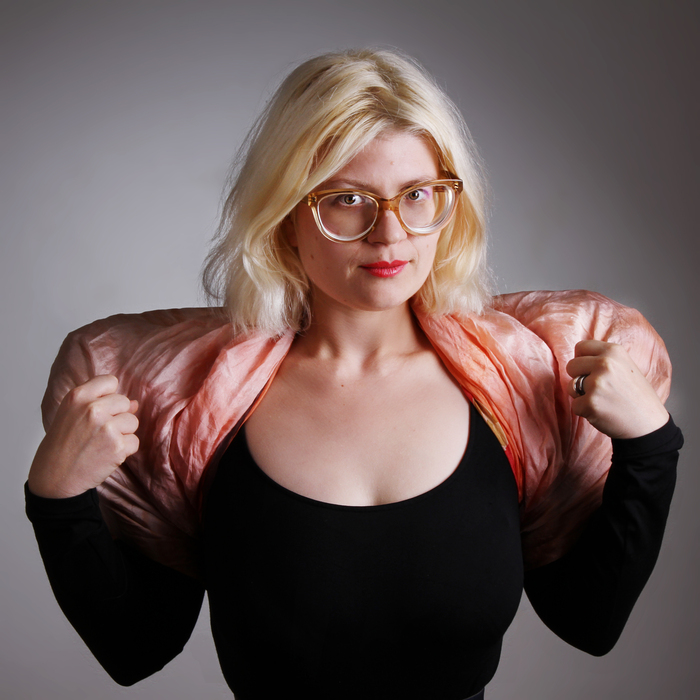Purveyors of: Performative, digestible subversion.
File next to: Norma Tanega, Vera Lynn, Nina Hagen, Klaus Nomi.
Playing: Sunday, May 19th at Arraymusic (155 Walnut Ave, Toronto).
Get your tickets here!
Mary Ocher is a creative storyteller, one who is never hesitant to use any medium or push boundaries to transmit thought and explore the ticks of humanity. Listen closely. Every piece of performance is a thesis and Mary is the speaker at the podium. Ocher’s prose feels like the voice of a grandchild asking “why?” to direct socio-political conflicts that followed her lineage. Pairing this voice with striking imagery, Mary’s narrative is born. Mary Ocher’s current work with Your Government reveals two drummers and two recent releases: The West Against The People and Faust Studio Sessions and Other Recordings. Wavelength’s Emma Bortolon-Vettor had a chance to ask the Berlin-based artist a few questions about her work before
What was your first instrument and what did you write with it?
My first instrument must have been the recorder, and I have used it on “The Irrevocable Temple” on the last record, but also in a Dorothy Ashby piece we’ve just recorded.
What goes into the design of your performances?
I’m not a very practical person, most of the time there would be big ideas that would go through many ears discussing how to achieve them, then we’d have to rethink everything and possibly change the entire concept to something a little more viable.
How was the rubbing sound in the beginning of “My Executioner” created?
With fingernails on the guitar strings, sometime I’d use a coin.
In your interview with Offshoot Magazine for the release of Origins of Evil, you said that the mentioning of Hitler is considered taboo in many countries. If you were to revisit this project, is there anything else you would have participants wear?
I made them wear the mustache, it was quite symbolic and it didn’t really need more than that. It gets scary when evil becomes taboo, then in turn denial, when it is so remote and isolated that we forget how easily things transform, hate becomes norm, and look where we are heading now, less than 10 years following this photography project.
How does your culture and upbringing influence the stories you tell?
Perhaps I tend to write a little too much about nationalism.
Given the incredible spanse of creative work that you do, what is your daily regimen? How do you stay disciplined?
Schedules, lots of little “to do” lists, structures – making time to spend with family and friends, then back to work.

